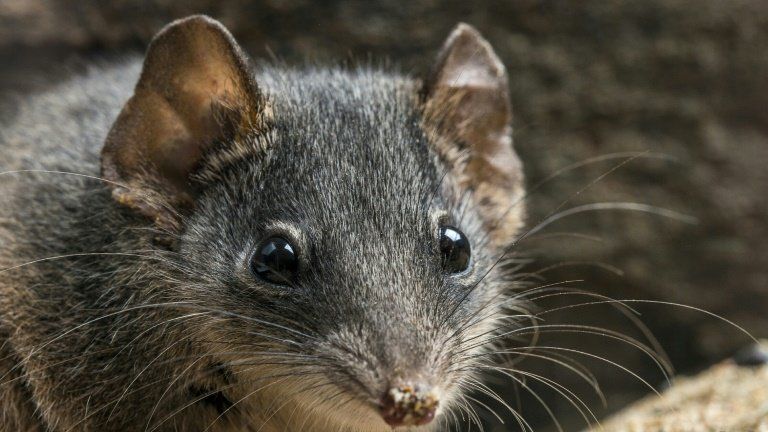Dying for sex: 'Frantic' mating driving Australian marsupials to extinction
The newly discovered antechinus species could die out - because of marathon 14-hour sex sessions, scientists in Queensland say.
Tuesday 15 May 2018 15:11, UK
Two species of marsupials whose males die after marathon sex sessions have been put on Australia's endangered list.
Scientists from Queensland University of Technology say biologists are racing against the clock to save the species from extinction.
The black-tailed dusky antechinus and the silver-headed antechinus - discovered in 2013 - are known for their suicidal mating habits.
Sex sessions lasting up to 14 hours are contributing to the challenges the species face, alongside climate change, habitat loss and feral pests.
"They are very frantic and try and get from one mate to another and the mating itself can last hours, so it's very tiring," said Andrew Baker, mammalogist at the university.
Males go from "absolutely prime health... to falling to pieces before your very eyes" within the annual frenzied fortnight of mating at the end of the winter, he said.
The exhausting marathon sessions see the animals attempt to hang on to so many female mates and fight off so many rivals that they end up producing lethal levels of testosterone.
The excess stops a stress hormone from switching off, destroying their organs and eventually killing them.
"They're honestly like the walking dead towards the end," said Dr Baker.
"I've seen them stumbling around during the day - they are nocturnal mostly - still looking for mates, bleeding from various parts of their body and their hair has fallen out."
Dr Baker discovered both of the endangered species and believes the population was 10 times bigger just a few decades ago.
There are now only three areas in Queensland where the marsupials live, with population sizes estimated to be fewer than 250 for males and females.
Females have a lifespan of about two years, with about half only ever breeding once, giving birth to between six and 14 offspring. The males die before their first birthday.
External pressures such as climate change are reducing the antechinus' food sources, Dr Baker said, adding that his team was searching to find other populations in Australia to study how to save the species.
"It's a double tragedy to only just recently discover them - and we were so excited about that, especially in a country like Australia where we have lost so many mammals - and then now the very ones we've discovered might be lost," he said.



